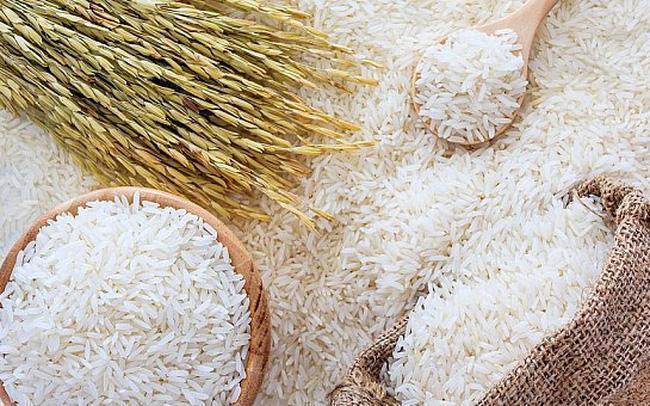 |
One day in early summer 2019, holding in his hands the test results of an organic rice variety grown in the central province of Quang Tri, Associate Professor Tran Dang Xuan, head of Laboratory of Plant Physiology and Biochemistry at Japan’s Hiroshima University, was very surprised.
A month before, when receiving a bag of rice from Dai Nam Company, which had worked with farmers in Quang Tri to test an organic rice variety, Xuan had thought that Quang Tri was heavily affected in the war and local farmers had used too much pesticides and chemical fertilizers, so it could not produce organic rice.
He was surprised to see the test results. The dead field in the land that was heavily contaminated with dioxin in the war had been miraculously revived.
The organic rice variety produced from this field was not only organic but super organic, as it met all 545 quality criteria.
Furthermore, two compounds Momilactone A and Momilactone B (MA and MB) found in this rice variety are effective in fighting diabetes, obesity, and gout.
 |
“We are conducting further research on many valuable characteristics of these two compounds, which have been published in many international biological journals. These compounds are found in the organic rice from Quang Tri,” Xuan said, adding that these two compounds are 30,000 times more precious and expensive than gold.
Eating a certain amount of this rice daily can help reduce the risk of getting these diseases. This conclusion changes the conventional thought that eating rice increases the risk of having diabetes.
According to Xuan, these compounds have also been found in Japanese rice, but Quang Tri organic rice has much higher concentrations. Based on the analysis, he said that the rice is very organic. He said Vietnam should encourage the development of the business-farmer model to create high-value rice products and strengthen Vietnam's rice position in the world.
The founder of the Quang Tri organic rice production chain model, Tran Ngoc Nam - General Director of Dai Nam Production and Trading Co., Ltd. – told VietNamNet that the day he decided to develop this model in Quang Tri, his friends and family all told him to not invest in this project. They said that field was a dead and infertile land, which was unsuitable to grow rice, let alone organic rice.
 |
Nam has proven that they are all wrong. So far, local farmers have harvested five crops of organic rice, with increasing output and earnings.
Nam has cooperated with farmers in many provinces to produce organic coffee, organic pepper, organic fruit... but Quang Tri was the place with the most unfavorable conditions.
“After a period of struggling, I decided to try to do something to change this land. I accepted the Quang Tri officials’ invitation to bring the technology I had studied for decades to this land to help local farmers change their lives," said Nam.
In recent years, in many large granaries across the country, farmers have not planted rice and turned to fruit trees for higher profit. So it is difficult for Quang Tri authorities to persuade farmers to grow rice, said Ha Sy Dong, Vice Chairman of Quang Tri Provincial People's Committee.
After five successful crops, local farmers are now very eager to plant organic rice.
 |
The area of organic rice in Quang Tri has increased to 158,224 hectares. The organic rice farming model has been implemented in 11 cooperatives in five districts and towns. The dead fields have been revived. Farmers can make a profit of up to 40 million VND per hectare, plus income from selling fish caught in the field.
"In the past, earnings from rice farming were just enough to cover daily life expenses. I never thought that there would be a day when I would get as much profit as now," said Cao Dinh Lap, a farmer in Vinh Thuy commune, Vinh Linh district. His family earned a profit of nearly VND100 million (nearly $5,000) in the last crop.
After three years of growing organic rice, from the dead field, farmers have created the Quang Tri organic rice brand. This product has been sold throughout the country and will be exported to the US and Japan.
 |
Quang Tri’s Vice Chair Ha Van Dong told VietNamNet that in the near future, the area of organic rice will increase to about 10,000 hectares. Moreover, in early July, the construction of an organic agricultural product processing factory commenced in Quang Tri.
This VND100 billion (nearly $5 million) factory will process organic agricultural products such as rice, coffee, peanuts, corn... in a closed circle for domestic consumption and export.
Quang Tri organic rice chain has become a model for many provinces and cities to learn from.
Bao Phuong - Thanh Nam

ST25 is a generic rice variety, not a brand: NOIP
The National Office of Intellectual Property (NOIP) says the ST25 rice variety has been granted a Protective Certificate No 21.VN.2020 under Decision No 45/QD-TT-VPBH dated March 6, 2020 by the director of the Department of Crop Production.

Vietnam aims to be world's top exporter of quality rice
In August 2020, when the Vietnam - EU Free Trade Agreement (EVFTA) took effect, Trung An High-tech Agriculture JSC exported about 150 tons of rice to the European Union.